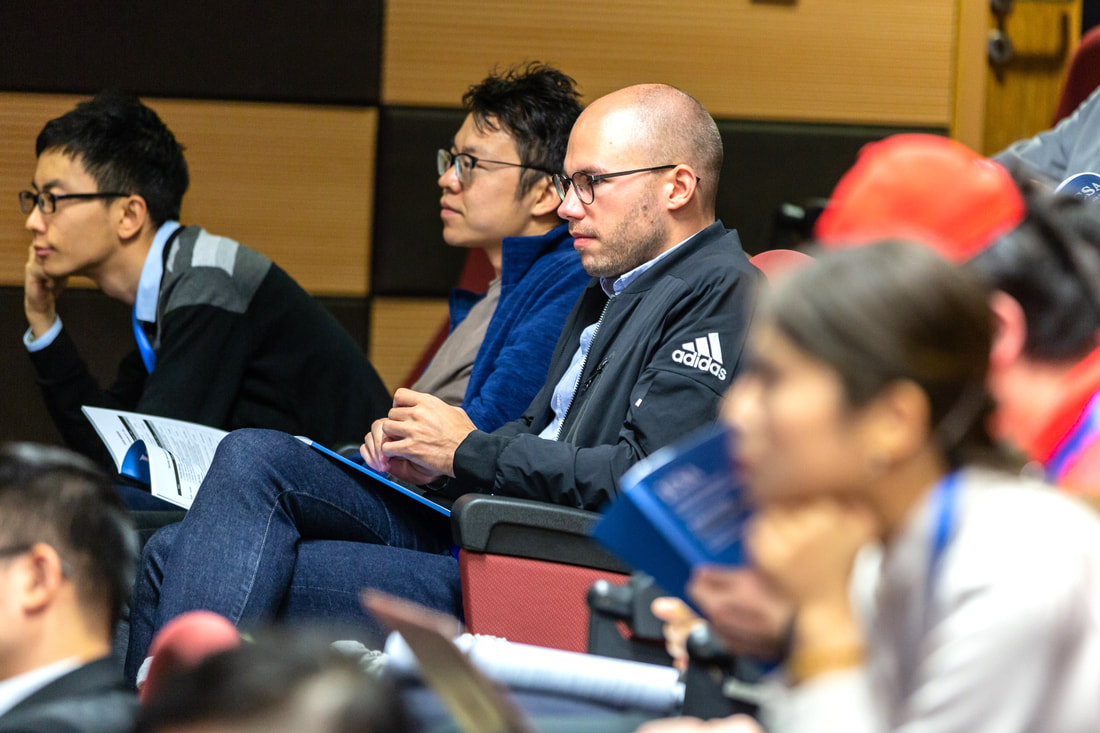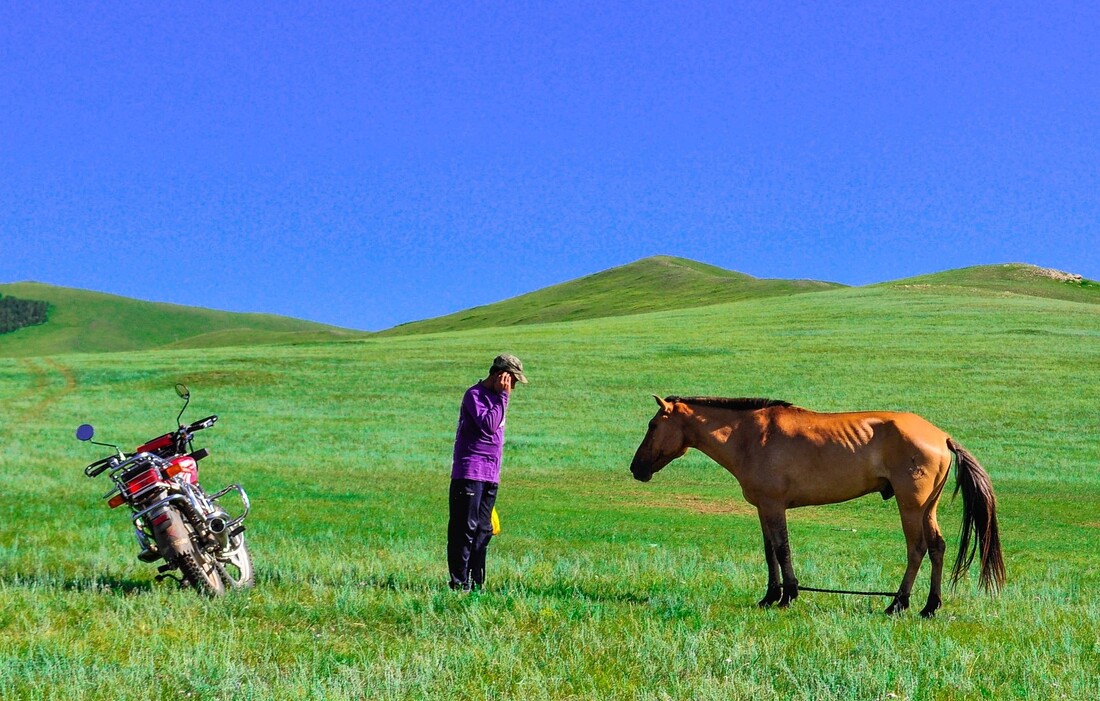|
'95% of what we think we know, we have simply accepted from what other people have told us.' (Dennis Hiebert) Nothing adds up. How can we identify hidden assumptions, implicit agendas and vested interests that lay behind what we see, hear and read in the media? Perhaps the answer to this question has rarely been so critical. Democracy and social cohesion within and between peoples and nations are threatened by manipulation and misrepresentation of what we may ordinarily regard as truth. Following writer Mark Twain, actor Denzel Washington commented famously, ‘If you don’t read the news, you’re uninformed. If you do read the news, you’re misinformed.’ Take international news in the UK. Why are we so focused on Russia-Ukraine and Israel-Gaza? Why haven’t we noticed, apart from the occasional glance, the terrible civil wars in Sudan, Myanmar or Democratic Republic of Congo? Why do we call Russia’s brutal intervention in Ukraine a ‘full-scale invasion’? Why do we assume that increasing NATO size-spend is the only solution? If Israel’s bombing is indiscriminate, why has it killed, proportionately, so few ‘adult men’? Why didn’t we see outraged street demonstrations against horrific, widespread atrocities by Daesh? These are profoundly important, deeply complex and extremely painful issues and we rarely have access to the underlying research or information that could help us, as ordinary and concerned citizens of the world, to discern and decide how to act. We are presented with multiple, competing viewpoints and demands and this can feel both perplexing and paralysing. I don’t know the answers to such questions yet I do believe they should play at least some part in shaping my response. I will share some considerations that may help us to avoid sleepwalking blindness. As we’re exposed to news reports, what are we noticing and not noticing? How far does what we’re noticing appear to confirm what we already believe or want to believe? How open are we to having our assumptions, our preconceived beliefs and ideas, challenged to reveal something different or new? Why is the news presenter or media channel presenting this particular story or angle? What do they want us to believe, think, feel or do? Who or what is being excluded by the reporter’s narrative? Whose voice, perspective or experience is being ignored or filtered out? Behind the scenes: who owns and-or funds the media channel, the presented report or the research that underpins it? How rigorously are research methods tested to avoid implicit bias? Are views and experiences presented in a report genuinely representative of a wider and diverse population, or different sides to a conflict? In interpreting statistics, is a reporter presenting a case selectively, or cherry-picking results to show or advocate a particular stance? In short, be sceptical – and look for evidence that supports or contradicts the research-reporter’s ‘news’.
20 Comments
‘The difficulty lies not so much in developing new ideas as in escaping from old ones.’ (John Maynard Keynes) Once upon a time…I would often get tens if not, on occasion, hundreds of responses to blog posts on LinkedIn. It was a thrilling experience to receive insights, ideas and experiences from people all over the world. Over time, however, the huge flood of responses gradually diminished to a tiny trickle. I felt surprised, disappointed and bemused. What had changed? I began to ask myself some searching questions: Were people bored with my content? Were fewer people using LinkedIn than before? Were fewer people engaging with posts on LinkedIn generally? I looked at which posts seemed to be getting lots of responses and noticed that they often looked more like Facebook posts: e.g. walking a dog, taking a child to school. This set me off down a different track. Had there been a shift in societies so that people were no longer interested in thinking through issues and more interested in sharing personal experiences? Had Covid lockdown and isolation shifted our focus from insights and ideas towards the social and relational, to feel less alone? Had we all slipped into a TikTok world? The problem was, I was asking the wrong questions. My starting assumption was that the critical issue was with my blog content. It led me, like Alice in Wonderland, down perplexing rabbit holes. It took a revelatory conversation with a marketing consultant, James Rowe, to discover the core issue was with my media, impacted by changes to LinkedIn algorithms. What assumptions are you making? How do you avoid getting stuck? ‘Action Learning aims to shake you out of the cage of your current thinking.’ (Pedler & Boutall) Action Learning: a method by which someone receives stretching, coaching-type questions from a small group of peers. The aim is to resolve a pressing challenge, a real-life/work issue that has left the person perplexed or stuck. The idea is to leave with actions, practical steps that will help to move things forward. Yet what gets a person stuck in the first place? If it’s a complex challenge, such as that of navigating the intricacies of diverse human relationships, we may become inadvertently caged by our own assumptions. Gareth Morgan commented that ‘people have a knack for getting trapped in webs of their own creation.’ If we don’t know what assumptions we’re making, everything may seem self-evident to us. This is where Action Learning and coaching really can help. If we can engender a spirit of curiosity within ourselves and invite challenging questions from different others, we may discover a door emerging in our previously-unseen cage, experience the agency to push it wide open and step outside to embrace fresh possibilities. It could just change...everything. ‘You can never really know someone completely. That’s why it’s the most terrifying thing in the world, really – taking someone on faith, hoping they’ll take you on faith too. It’s such a precarious balance. It’s a wonder we do it at all.’ (Libba Bray) There’s an idea in Gestalt psychology that we’re predisposed, hard-wired, to ‘fill in the gaps’. Here’s a real and practical example. I was once invited to facilitate a conference of around 50 people from diverse professional backgrounds in the housing sector. I had never met anyone in the group and they had never met me. I stood up on the podium, introduced myself simply as ‘Nick Wright, an organisation development consultant from England’, then invited everyone to take a pen and paper. I explained that I would ask them a series of questions about myself, to which they were to guess the answers. ‘Which newspaper do I read?’ ‘What political party will I vote for at the next General Election?’ ‘Am I married, or single?’ ‘What is my professional background?’ ‘What’s my favourite hobby outside of work?’ I then asked who had been able to answer every question. Everyone raised their hands. I now invited them to draw a simple face against each of their answers – which they wouldn’t be expected to share in the group. A happy face meant their answer drew them towards me; an unhappy face that it pushed me away. A neutral face meant, well, neutral. Again, everyone managed to do it. I paused and invited them to reflect at their tables on what had just happened. Person after person said how astonished they felt at how quickly and easily they had created a profile of me in their minds, and how that had influenced how they felt about – and were now likely to respond and relate to – me. They had filled in the gaps of not-knowing by drawing on hopes and fears, past experiences, personal projections, cultural assumptions etc. Filling in the gaps enables us to relate quickly to others rather than starting every relationship as if from scratch. It also risks unhelpful stereotyping and bias. This raised important questions for participants at the conference so I offered 3 principles: compassion, curiosity and challenge. Compassion: ‘What do I need to feel safe to contribute in this group? ‘How can I demonstrate a compassionate stance towards others?’ Curiosity: ‘What assumptions am I making about those around me, e.g. based on their looks, accent or job title?’ ‘Who or what is influencing the ways in which I’m thinking about, feeling about and responding to others?’ Challenge: ‘What am I not-noticing about those around me?’ ‘How open am I to have my beliefs about others tested?’ ‘One fish asks another fish ‘How is the water?’ The two swim on for a bit and eventually the other fish replies, ‘What is water?’’ (David Foster Wallace) The more I know, the less I understand. That’s the conclusion I came to after spending 5 years in a Christian faith community in London with 70% Nigerian people, 20% Ghanaian, 8% Mauritian and 2% from the UK. It’s a belief that’s been reinforced by 7 years closely alongside people from the Philippines and other countries in East and South East Asia. Beyond surface-level cultural traits such as distinctive clothing and food, culture runs very deep, mostly well below the radar of conscious awareness. Like the values and beliefs that underpin it, culture often only becomes known, including to ourselves, when we encounter a person or situation that contradicts or clashes with it. It can take us by surprise. I’ve made various cross-cultural blunders on route, ranging from an innocent hug in one context to posing questions in a group in another. On reflection, I’ve sometimes been astounded by my own naivety. Yet few opportunities for learning compare with a cross-cultural experience. It may feel like a bumpy ride on route yet the results can be transformational. [See also: Cross-cultural coaching; Crossing cultures; Cross-cultural action learning] ‘If you want to know what your true values are, have a look at your diary and your bank statement.’ (Selwyn Hughes) Take any example of an important-to-you decision that you have taken during this past week. Consciously or subconsciously, directly or indirectly, it will have reflected something of your underlying beliefs and values. At one level, every decision we take with awareness represents the outcome of a choice point, analogous to a choice of a direction at an intersection in a road. Guiding principles are a way of choosing to align our decisions and behaviour with our beliefs, ethics and values. I worked with a group recently where, during feedback, participants commented on how they felt impacted by what they saw and experienced as my ‘distinctive’ style and approach. They were curious and asked me what, if anything, lay behind this – that which they had experienced – for me. What is it that makes the difference? I held up a small, yellow, post-it note to the screen. On it are written 3 words in my own scrawled handwriting: Prayer, Presence, Participation. These are, if you like, the guiding principles that underpin me personally and all of my work professionally. I carry them with me and have them stuck on my desk, beside the monitor. I pause and focus on them consciously and deliberately before, say, writing a message, joining a conversation or running a workshop. They really do matter to me. Prayer is inviting and opening myself to God’s insight, wisdom and power. He is able to reveal, do and achieve things that are truly impossible for me alone. Presence is ensuring quality of attention and contact with each person or group that I will meet. It’s viewing and approaching each person, each moment, as a sacred encounter. Participation is an invitational spirit that calls for humility and courage. It means engaging with people, not simply technology or any materials that we may use. At the end of the conversation, I invited each person in the group to reflect for a moment – for as long as they needed – and to write down 3 words that, perhaps, they would choose to underpin their own practice. They did this thoughtfully, alone, then each shared with others in the group what they had written. This felt so much deeper and more meaningful than simple words on paper could capture or convey. It was about integrity, authenticity and congruence: choosing to take a stance. What core principles guide the focus and parameters of your decisions and behaviour? What stance are you willing to take? ‘It’s not what you look at that matters, it’s what you see.’ (Henry David Thoreau) Psychologist Albert Ellis, widely regarded as the founding father of what has today evolved into Cognitive Behavioural Therapy, noticed that different people responded differently to what were, on the face of it, very similar situations. Previously, you might have heard, ‘Person X feels Y because Z happened’. It assumed a direct causal relationship between emotions and events. Ellis’ observations challenged this, proposing that something significant was missing in the equation. After all, if this assumption were true, we could expect that everyone should feel the same way in circumstance Z. Curious about this, Ellis concluded that the critical differentiating and influencing factor that lays between emotions and events is belief. It’s what we believe about the significance of an event that affects most how we feel in response to it. Here we have person A who hears news of a forthcoming redundancy with fear and trepidation. He believes it will have catastrophic financial consequences for himself and his family. Person B receives the news with positive excitement. She believes it will provide her with the opportunity she needs to pursue a new direction in her career. Drawing on this insight, organisational researchers Lee Bolman & Terrence Deal proposed that, in the workplace, what is most important may not be so much what happens per se, as what it means. The same change, for instance, could mean very different things to different people and groups, depending on the subconscious interpretive filters through which each perceives it. Such filters are created by a wide range of psychological, relational and cultural factors including: beliefs, values, experiences, hopes, fears and expectations. This begs an important question: how can we know? Hidden beliefs are often revealed implicitly in the language, metaphors and narratives that people use. To observe the latter in practice, notice who or what a person or group focuses their attention on and, conversely, who or what appears invisible to them. Listen carefully to how they construe a situation, themselves and others in relation to it. Inquire in a spirit of open exploration, ‘If we were to do X, what would it mean for you?’; ‘If we were to do X, what would you need?’ This is about listening, engagement and invitation. Attention to the human dimension can make all the difference. ‘I’m not in your situation. And neither am I you in your situation.’ (David Cooper) A stretching skill in coaching, action learning and facilitation is often to step back and to stay back. I may imagine vividly what I might think, how I might feel and what I might do if I were in the situation a client has described. Nevertheless, as David Cooper has summarised so well (above), the truth is I’m not there and I’m not you. A risk is that I may inadvertently and subconsciously project myself onto the world of the client. Why is this important and how can we use it? Firstly, the client portrays a challenge, dilemma or opportunity from their own perspective. It’s a personally and-or socially-constructed view with associated feelings that may reveal all kinds of hidden assumptions, beliefs, values, hopes and expectations. These may be quite different to what the same situation could hold for the coach. Exploring how the client construes the situation and what lays behind and beneath it for them can unlock fresh insight and potential. Secondly, factors that stand out to the client as significant in a situation can be very different to those that stand out for the coach because of differences in what people notice, what value they attach to it and what meaning they make of it. What a person notices is influenced psychologically by what’s important to them. What, therefore, surfaces into awareness (or not) for the client can shed useful light on underlying personal-cultural assumptions, beliefs and values. Thirdly, how the coach could act in the client’s situation - and the consequences of their actions - would be influenced by their own lived experiences, their personal preferences and cultural norms, their own networks of relationships and the knowledge and skills they can draw upon. Unless the client’s issue has a definitive right or correct solution, the optimal way through for the client may be quite different to that for the coach. I’m not in your situation – and I’m not you. It’s a simple tool I may use with people who feel stuck or who are struggling to gain traction with an issue. Imagine a person is facing a dilemma: they want to have more disposable income at the end of each month, but can’t work out how to achieve it. They face 3 principal options: to increase their income; to reduce their expenditure; or both. Or a person wants to lose weight and they, too, have 3 principal options, to: increase their physical exercise; to reduce their calorific intake; or both. A basic 4x4 grid can come in useful here. I may take a piece of paper or, if working online, open a whiteboard on screen that the other person can also see and write onto. On one axis, I will draw a polarity: ‘Willing to do’…’Not willing to do.’ On the intersecting axis: ‘Can do’…’Can’t do.’ It creates 4 possibilities: Willing to do and can do; Willing to do but can’t do; Can do but not willing to do; Can’t do and not willing to do. It also forms a visual graphic that segments different dimensions of experience. Now, in relation to each of the options (for instance: vis a vis income and expenditure; or exercise and dieting - above), I will ask the person to jot down their own responses in each quadrant. I will then invite them to reflect critically on what they have posted there: for example, What do they notice? How honest are they being with themselves? What presuppositions might they be holding? Who or what could be influencing what they have written in each area? Who or what could make a shift? More often than not, a person discovers they are indeed making assumptions that are limiting their horizons and actions; or that they are unwilling, for whatever reason, to do whatever it would take to achieve their goals. The first area can touch on blind spots (things they don’t see); the second on hot spots (things they don’t find easy to talk about). It may take considerable courage to admit to oneself that, for instance, ‘I’m not willing to put my money where my mouth is, or to take a risk.’ Spiritual-existential and psychological coaching can often prove helpful here, in that they enable a person to explore their underlying beliefs, values and motivations and what they or others may be doing subconsciously to sabotage themselves and their success. It creates a safe, supportive and challenging space and relationship in which to stand back, reflect, evaluate and re-engage from a more authentic stance. What do you desire most in life or work? Are you willing and able, or not? (See also: Grit and Get a grip) In its now-classic album, Hemispheres, Canadian rock band, Rush, sing a dramatic story of a cosmic struggle between competing gods of love and reason; each determined to rule humanity on its own terms. It’s a creative mythological account of the very real dilemmas and tensions we face and experience in human decision-making of head vs heart. (If interested in a faith dimension, we can see this polarity resolved in Jesus, described in the Bible as ‘full of grace and truth’, and in his call to be ‘wise as serpents and tame as doves’). Yet, how hard it is to do this in practice. It becomes more complex if we get caught up in emotional reasoning: ‘…the condition of being so strongly influenced by our emotions that we assume that they indicate objective truth. Whatever we feel is true, without any conditions and without any need for supporting facts or evidence’ (Therapy Now, 2021). It’s a blurring of heart and head so that the former appears to us, as if self-evidently, the latter. Betts and Collier, in their thoughtful review of refugee policy (Refuge, 2017) liken this to a ‘headless heart’; a decision driven by emotional response without due regard for consequences. A person may hold the opposite extreme, the ‘heartless head’, where he or she believes every decision must be informed or supported by rational thinking or objective evidence - and emotion or intuition are disregarded as irrelevant or unsound. We see this in cultural environments where, as Eugene Sadler-Smith observes, leaders feel compelled to post-rationalise intuitive decisions in order to make them more acceptable to colleagues (Inside Intuition, 2007). It’s a stance that risks dismissing beliefs, values and other dimensions of sense-making, motivation and experience. John Kotter brings words of wisdom here (Leading Change, 2012): to pay attention to our own default biases and to take account of those of others too, if we’re seeking to influence change. On presenting vision, he offers a helpful rule of thumb, ‘convincing to the mind and compelling to the heart’. The Myers-Briggs Type Indicator (MBTI) provides useful insight into different preferences that influence decision-making too. Rush’s epic song ends with its own solution: ‘Let the truth of Love be lighted, let the love of Truth shine clear…with Heart and Mind united in a single perfect sphere.’ |
Nick WrightI'm a psychological coach, trainer and OD consultant. Curious to discover how can I help you? Get in touch! Like what you read? Simply enter your email address below to receive regular blog updates!
|













 RSS Feed
RSS Feed